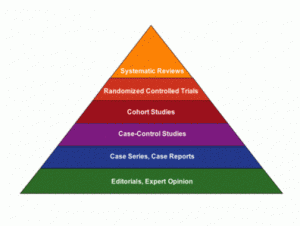Jun
30
2016
 Often there are several layers to my skeptical articles – there is the science story itself, and then there is the reporting of the science and the underlying neuropsychological factors that led to the disconnect between the two.
Often there are several layers to my skeptical articles – there is the science story itself, and then there is the reporting of the science and the underlying neuropsychological factors that led to the disconnect between the two.
Here we have another classic example, surrounding the claim that cancer (and sometimes extended to other “modern” diseases) were rare in pre-industrial societies based on evidence from mummies.
The Narrative
The psychological and media story here is that people tend to organize their knowledge around thematic narratives (which I am doing right here – so meta). We like stories, especially stories that have meaning, and especially when that meaning is emotionally satisfying or surprising in some way.
Continue Reading »
Jun
28
2016
 Caffeine is a drug. I think most people know that, but perhaps they don’t really think about it. Caffeine is essentially a legal unregulated drug (much like alcohol and nicotine, but with no age restriction).
Caffeine is a drug. I think most people know that, but perhaps they don’t really think about it. Caffeine is essentially a legal unregulated drug (much like alcohol and nicotine, but with no age restriction).
Coffee, tea, cola, and chocolate are all common sources of caffeine. Many people use this drug on a regular basis, often daily. They become addicted to this drug, and suffer withdrawal symptoms when they don’t take their regular dose. If caffeine were not readily available in commonly consumed food and drink, and say it were being introduced as a new drug, I wonder how it would be viewed and regulated.
A new study looks at the effects of caffeine on mental performance in those who are sleep deprived (a common application). Caffeine is a stimulant, it therefore does increase alertness and mental function. However, like all stimulants, its effects are a double-edged sword.
The study looked involved only 48 subjects, and had them restricted to 5 hours of sleep per night. Half were then given caffeine at 8 am and 12 noon while the other half were given placebos. For the first three days those taking caffeine performed better on mental tasks than those getting placebo. On days four and five, however, there was no difference.
Continue Reading »
Jun
27
2016
“You’re unhappy. I’m unhappy too. Have you heard of Henry Clay? He was the Great Compromiser. A good compromise is when both parties are dissatisfied, and I think that’s what we have here.”
– Larry David
Senate Democrats and Republicans have reached a compromise on the issue of mandatory GMO labels. I am not happy with the outcome, but it could have been worse. Apparently pro-labeling advocates are unhappy too.
Last year the House passed a bill that would preempt mandatory labels. That bill stated:
(Sec. 101) This bill amends the Federal Food, Drug, and Cosmetic Act to require the Food and Drug Administration (FDA) to continue the voluntary consultation process established under the FDA’s “Statement of Policy: Foods Derived from New Plant Varieties.” In that process, the FDA evaluates a scientific and regulatory assessment provided by the developer of a food produced from, containing, or consisting of a plant that is a genetically engineered organism (GMO).
The FDA may require a GMO food to have a label that informs consumers of a material difference between the GMO food and a comparable food if the disclosure is necessary to protect public health and safety or to prevent the label from being false or misleading. The use of a GMO does not, by itself, constitute a material difference.
This was a reasonable bill, which acknowledges that the way a food is produced saying nothing directly about the safety or other properties of the end product. A GMO can be perfectly safe, and a non-GMO can be unsafe.
Continue Reading »
Jun
24
2016
 I wrote last year about one aspect of autonomous cars (cars that are capable of driving themselves – autoautos, perhaps) that you might not think of right away but becomes obvious once pointed out: the cars will have to have an algorithm to determine what they do in an emergency situation.
I wrote last year about one aspect of autonomous cars (cars that are capable of driving themselves – autoautos, perhaps) that you might not think of right away but becomes obvious once pointed out: the cars will have to have an algorithm to determine what they do in an emergency situation.
For example, let’s say you are traveling down a road at 40mph and a group of people step out onto the road. The car’s computer calculates that it does not have enough space to come to a stop, so its only option to avoiding hitting the pedestrians is to swerve to the side, but there are obstacles on both sides and therefore swerving will result in a crash which might kill you. What should the car be programmed to do in this situation?
A recent series of surveys explores public opinion about autonomous vehicles (AVs).
To simplify the matter a bit, we can refer to such cars as utilitarian, meaning that their algorithms are designed to minimize the total loss of life without giving priority to the car’s own passengers. You can imagine a number of specific scenarios, but that is the essence of the issue. Should the car minimize risk to its passengers, or to all people equally regardless of their relative position to the car (pedestrian or passenger in another vehicle)?
Continue Reading »
Jun
23
2016
 The CDC conducts an ongoing National Health Interview Survey (NHIS) to track various aspects of American’s use of health care. Since 2002 they have been tracking use of so-called alternative medicine services as part of the survey. The most recent results of this survey are available, including data through 2012.
The CDC conducts an ongoing National Health Interview Survey (NHIS) to track various aspects of American’s use of health care. Since 2002 they have been tracking use of so-called alternative medicine services as part of the survey. The most recent results of this survey are available, including data through 2012.
The headline is that Americans spent $30.2 billion (out of pocket) on “alternative medicine” in 2012. That figure is alarming to anyone who cares about having a science-based standard in health care, and about consumers being scammed, but it is also highly misleading.
The core problem is that the category “alternative” (whether you call in complementary, integrative, functional, or whatever) is vague, poorly defined, and nonsensical. It is nothing but a marketing term meant to give an impression of hip acceptability to what was previously known simply (and more accurately) as health fraud.
To increase the apparent popularity of the false category, proponents have always inflated the numbers by including things that are not, by any reasonable definition, alternative. This survey is not exception.
Continue Reading »
Jun
21
2016
 People generally suck at statistics. Our innate sense of how likely something is does not accord very well with reality, especially for large numbers.
People generally suck at statistics. Our innate sense of how likely something is does not accord very well with reality, especially for large numbers.
But don’t worry, this just means you have to think a little harder about how likely things are. David Hand writes about this in his 2014 book: The Improbability Principle: Why Coincidences, Miracles, and Rare Events Happen Every Day. This is making the rounds again in the media because of the recent “rare” astronomical events.
Yesterday the Summer Solstice coincided with the Strawberry Moon – the first full moon in June. The last time this happened was in 1967. Recently we have seen “rare” transits of Mercury and Venus across the sun.
These events are not that rare, and I really don’t see what the fuss is all about (I guess the media is desperate for anything they can hype.) Don’t get me wrong, I love astronomical events, it is their rarity that I think is overhyped.
Continue Reading »
Jun
20
2016
 One of the biggest challenges with trying to hold the line against pseudoscience in medicine is that the proponents of pseudoscience are relentless. Since they have a large financial stake in the outcome, they dedicate the time and resources to lobbying state legislatures to get the laws they want.
One of the biggest challenges with trying to hold the line against pseudoscience in medicine is that the proponents of pseudoscience are relentless. Since they have a large financial stake in the outcome, they dedicate the time and resources to lobbying state legislatures to get the laws they want.
They lobby for health care freedom laws to weaken the standard of care, to carve out exemptions for particular kinds of quackery (like chronic Lyme quackery), to mandate coverage of worthless treatments through insurance, they fight for licensure of dubious professions, and then to expand their scope of practice. If they fail, they are back the following year, and they have the money to support their efforts.
Often such laws are passed before we even know they exist. There are just too many legislatures to watch, and often the efforts are deliberately under the radar. Every time the side of science wins, the victory is temporary. Every time the side of pseudoscience wins, their victory is permanent, and they slowly ratchet up the laws favorable to quacks and erode the standard of care.
The organizations that should be dedicating time and resources to fighting the advance of pseudoscience in medicine (like the AMA and state professional organizations) usually don’t. They are either gun shy or ideologically soft on pseudoscience. They are being placated with propaganda about how such treatments are harmless, just the soft and fuzzy part of medicine. Nothing to worry about. Continue Reading »
Jun
17
2016

The debate about anthropogenic global warming (AGW), in my opinion, is mostly silly. Most climate scientists are saying there is a 90-95% chance that human activity is driving global warming, and that this warming is likely to have some unwanted consequences, such as rising sea levels.
Phil Plait made an excellent analogy – what if the majority of the world’s astronomers said there was a 90-95% chance that an asteroid was going to strike the earth in 50 years? Hell, what if they said there was a 10% chance? How certain would we need to be before we decided to take action? Keep in mind, asteroids are easier to deflect the more time you have. The closer we get to the impact, the harder it is to avoid and at some point it becomes impossible.
Now imagine if one political party claimed that astronomers were exaggerating the risk to secure funding, that those who believed the astronomers were being “impact hysterics,” that asteroid impacts aren’t necessarily a bad thing, and there is probably nothing we can do about it anyway. An asteroid impact is more sudden and dramatic, but the effects of AGW could be comparable to a medium-sized impact in terms of the cost to civilization.
Continue Reading »
Jun
16
2016
 Here is a curious article published recently in the New England Journal of Medicine (NEJM): Assessing the Gold Standard — Lessons from the History of RCTs. The article discusses the history and current role of randomized controlled trials (RCTs) in medical research and practice.
Here is a curious article published recently in the New England Journal of Medicine (NEJM): Assessing the Gold Standard — Lessons from the History of RCTs. The article discusses the history and current role of randomized controlled trials (RCTs) in medical research and practice.
This is, of course, a very complex and important issue, worthy of serious discussion. The article, in my opinion, is a mixed bag. It correctly points out many of the issues with RCTs, but I feel draws the wrong conclusions from them.
Flawed or Broken
Flawed does not necessarily mean broken. I feel this concept applies frequently to such discussions, and if it is not explicitly explored then we end up just serving our own bias.
Continue Reading »
Jun
14
2016
 Scientific skeptics spend a great deal of their time and effort fighting against pseudoscience, ideology, and entrenched beliefs. This can be a frustrating effort, given that such beliefs tend not to be based in scientific thinking in the first place. It can be so frustrating that Marc Crislip chose as the symbol for the Society for Science-Based Medicine an image of Sisyphys endlessly pushing a rock up hill.
Scientific skeptics spend a great deal of their time and effort fighting against pseudoscience, ideology, and entrenched beliefs. This can be a frustrating effort, given that such beliefs tend not to be based in scientific thinking in the first place. It can be so frustrating that Marc Crislip chose as the symbol for the Society for Science-Based Medicine an image of Sisyphys endlessly pushing a rock up hill.
I do think we are having a significant impact on culture, the media, and the bigger conversation on scientific issues, but it is hard to measure, and sometimes even perceive, that impact. The noise of pseudoscience can seem overwhelming. We are mostly left to imagine that the situation would be much worse without our efforts and take comfort in small victories.
This is why I took notice of a recent article by Risk-Monger that claims we have changed the dynamic with respect to public opinion about genetically modified organisms (GMOs). He makes an interesting case that there has been a “Surprisingly Sudden Demise of the Anti-GMO Movement.” Here is his summary of the evidence: Continue Reading »
 Often there are several layers to my skeptical articles – there is the science story itself, and then there is the reporting of the science and the underlying neuropsychological factors that led to the disconnect between the two.
Often there are several layers to my skeptical articles – there is the science story itself, and then there is the reporting of the science and the underlying neuropsychological factors that led to the disconnect between the two.
 Caffeine is a drug. I think most people know that, but perhaps they don’t really think about it. Caffeine is essentially a legal unregulated drug (much like alcohol and nicotine, but with no age restriction).
Caffeine is a drug. I think most people know that, but perhaps they don’t really think about it. Caffeine is essentially a legal unregulated drug (much like alcohol and nicotine, but with no age restriction).
 I wrote last year
I wrote last year The CDC conducts an ongoing National Health Interview Survey (NHIS) to track various aspects of American’s use of health care. Since 2002 they have been tracking use of so-called alternative medicine services as part of the survey. The most recent results of this survey are available,
The CDC conducts an ongoing National Health Interview Survey (NHIS) to track various aspects of American’s use of health care. Since 2002 they have been tracking use of so-called alternative medicine services as part of the survey. The most recent results of this survey are available,  People generally suck at statistics. Our innate sense of how likely something is does not accord very well with reality, especially for large numbers.
People generally suck at statistics. Our innate sense of how likely something is does not accord very well with reality, especially for large numbers. One of the biggest challenges with trying to hold the line against pseudoscience in medicine is that the proponents of pseudoscience are relentless. Since they have a large financial stake in the outcome, they dedicate the time and resources to lobbying state legislatures to get the laws they want.
One of the biggest challenges with trying to hold the line against pseudoscience in medicine is that the proponents of pseudoscience are relentless. Since they have a large financial stake in the outcome, they dedicate the time and resources to lobbying state legislatures to get the laws they want.
 Here is a curious article published recently in the New England Journal of Medicine (NEJM):
Here is a curious article published recently in the New England Journal of Medicine (NEJM):  Scientific skeptics spend a great deal of their time and effort fighting against pseudoscience, ideology, and entrenched beliefs. This can be a frustrating effort, given that such beliefs tend not to be based in scientific thinking in the first place. It can be so frustrating that Marc Crislip chose as the symbol for the
Scientific skeptics spend a great deal of their time and effort fighting against pseudoscience, ideology, and entrenched beliefs. This can be a frustrating effort, given that such beliefs tend not to be based in scientific thinking in the first place. It can be so frustrating that Marc Crislip chose as the symbol for the 




